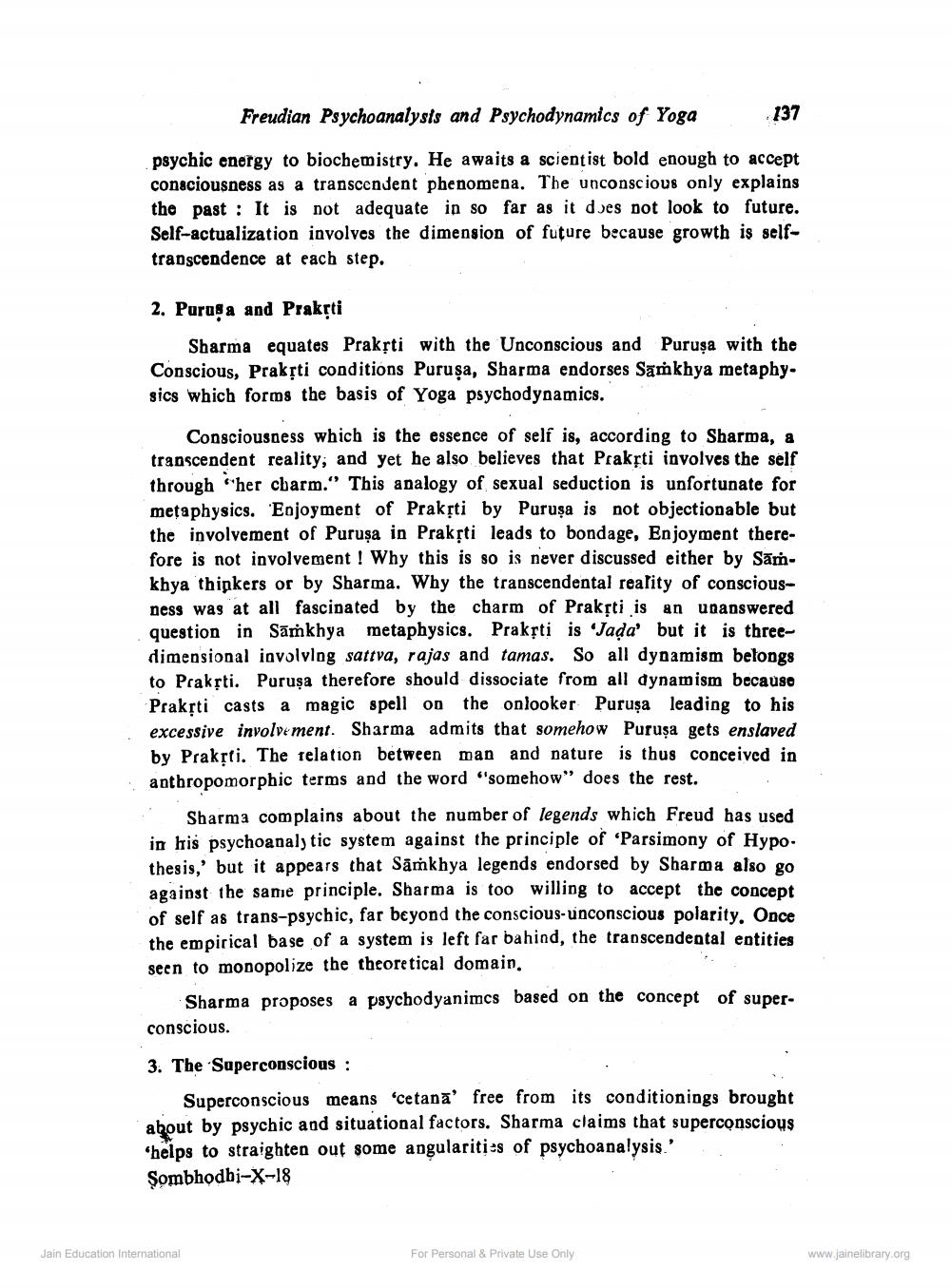________________
Freudian Psychoanalysts and Psychodynamics of Yoga
psychic energy to biochemistry. He awaits a scientist bold enough to accept consciousness as a transcendent phenomena. The unconscious only explains the past: It is not adequate in so far as it does not look to future. Self-actualization involves the dimension of future because growth is selftranscendence at each step.
137
2. Purua and Prakti
Sharma equates Prakrti with the Unconscious and Purusa with the Conscious, Prakṛti conditions Puruşa, Sharma endorses Samkhya metaphysics which forms the basis of Yoga psychodynamics.
Consciousness which is the essence of self is, according to Sharma, a transcendent reality, and yet he also believes that Prakṛti involves the self through her charm." This analogy of sexual seduction is unfortunate for metaphysics. Enjoyment of Prakrti by Purusa is not objectionable but the involvement of Purusa in Prakrti leads to bondage, Enjoyment therefore is not involvement! Why this is so is never discussed either by Samkhya thinkers or by Sharma. Why the transcendental reality of consciousness was at all fascinated by the charm of Prakṛti is an unanswered question in Samkhya metaphysics. Prakṛti is 'Jada' but it is threedimensional involving sattva, rajas and tamas. So all dynamism belongs to Prakrti. Purusa therefore should dissociate from all dynamism because Prakṛti casts a magic spell on the onlooker Purusa leading to his excessive involvement. Sharma admits that somehow Puruşa gets enslaved by Prakṛti. The relation between man and nature is thus conceived in anthropomorphic terms and the word "somehow" does the rest.
Sharma complains about the number of legends which Freud has used in his psychoanalytic system against the principle of 'Parsimony of Hypo. thesis, but it appears that Samkhya legends endorsed by Sharma also go against the same principle. Sharma is too willing to accept the concept of self as trans-psychic, far beyond the conscious-unconscious polarity. Once the empirical base of a system is left far bahind, the transcendental entities seen to monopolize the theoretical domain,
Sharma proposes a psychodyanimes based on the concept of superconscious.
3. The Superconscious:
Superconscious means 'cetana' free from its conditionings brought about by psychic and situational factors. Sharma claims that superconscious "helps to straighten out some angularities of psychoanalysis. Sombhodhi-X-18
Jain Education International
For Personal & Private Use Only
www.jainelibrary.org




